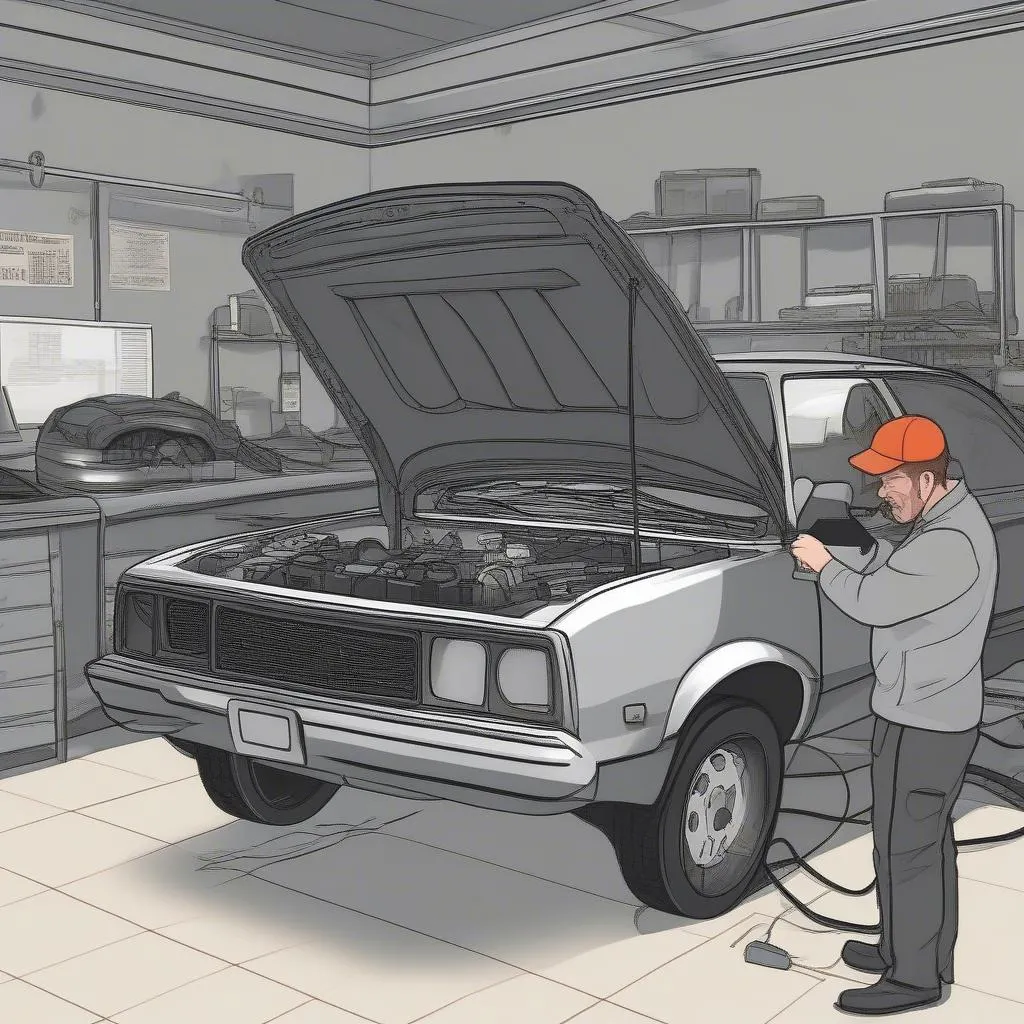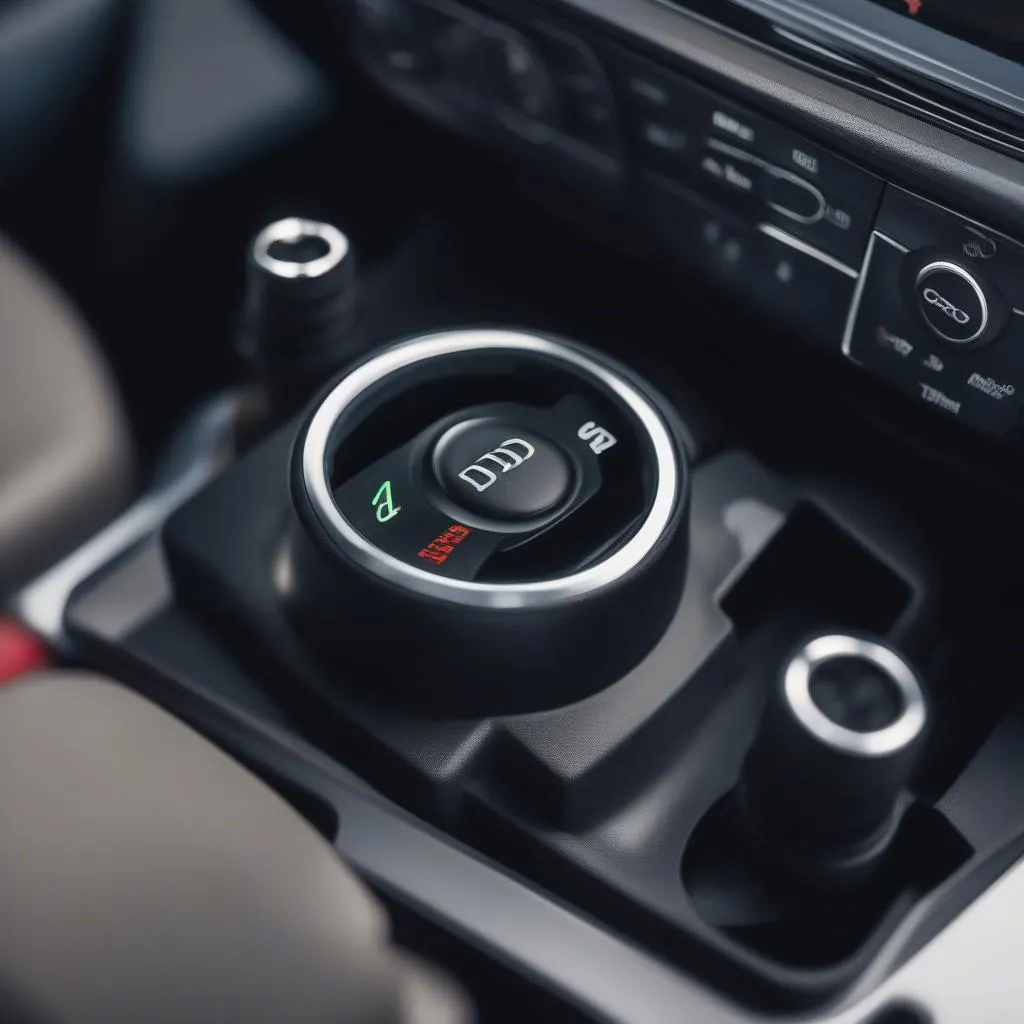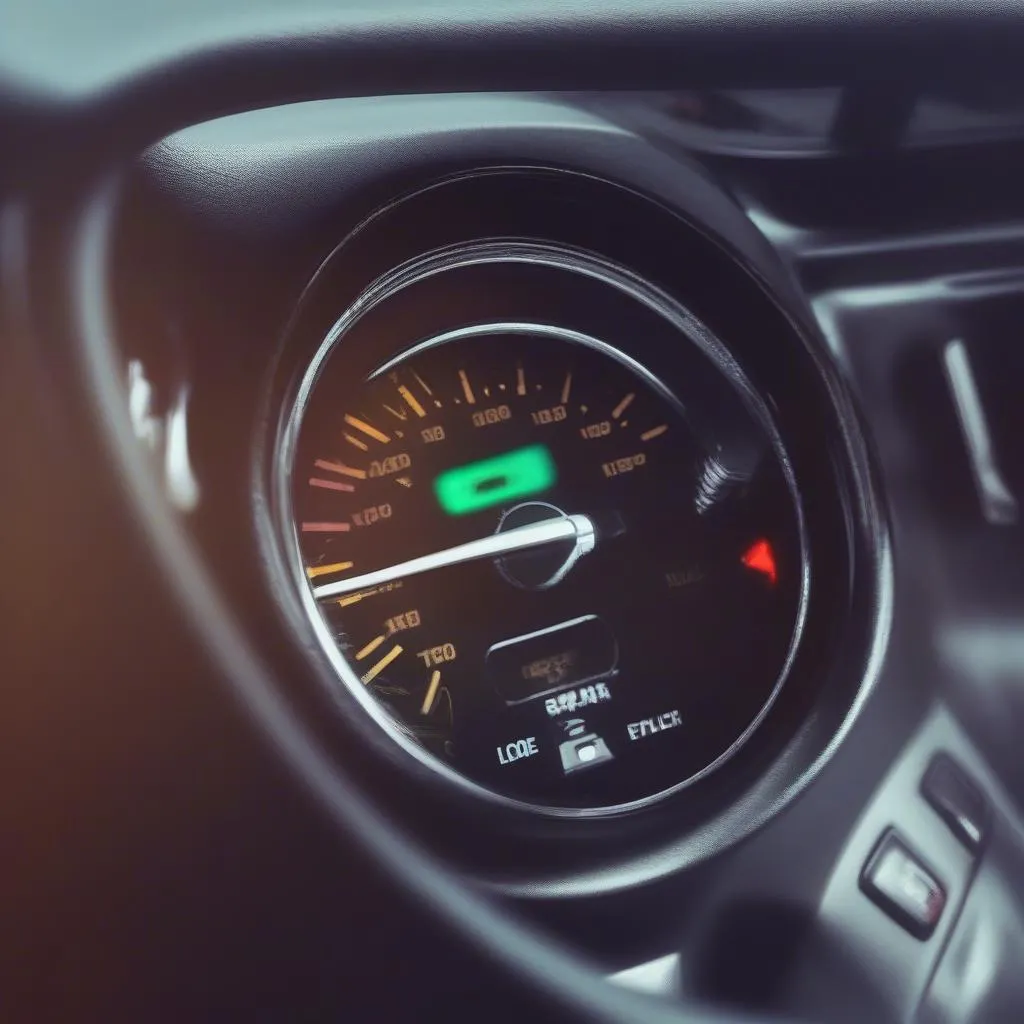Let’s face it, every car owner dreads that ominous “check engine” light. It’s like a flashing red flag screaming, “Something’s wrong!” But before you panic and rush to the mechanic, you might be wondering, “Can I diagnose the issue myself? Is an OBD scanner the same as an auto scanner?” Let’s dive into this automotive puzzle and find out!
Understanding the Key Concepts
What is an OBD Scanner?
The OBD (On-Board Diagnostics) system is a brilliant invention designed to monitor your car’s emissions and performance. It’s like your car’s own little health inspector, checking for any problems that could lead to excessive pollution or engine trouble. Think of it as a small computer inside your car constantly running diagnostic tests.
An OBD scanner is like a translator that helps you understand what the OBD system is saying. It plugs into a standardized port (usually found under your dashboard) and allows you to access the information stored within your car’s OBD system.
In simpler terms: An OBD scanner helps you read your car’s “diagnostic codes,” which provide clues about potential problems.
What is an Auto Scanner?
Now, an auto scanner is a broader term. It’s any tool that can diagnose and troubleshoot problems with your car. An auto scanner can handle various tasks, including reading and clearing diagnostic codes, testing electrical systems, and even monitoring live sensor readings.
Think of it this way: An auto scanner is like a Swiss Army Knife for your car, offering a wide range of diagnostic tools, while an OBD scanner is a specialized tool focusing on reading and interpreting diagnostic codes.
The Connection: Are They the Same?
Here’s where it gets interesting: Not all auto scanners are OBD scanners, but all OBD scanners are auto scanners.
It’s like saying, “All cats are mammals, but not all mammals are cats.” An OBD scanner is a specific type of auto scanner, focusing on the OBD system.
The Significance of OBD Scanners
OBD scanners have become essential tools for modern car owners and mechanics. They offer several benefits:
-
DIY Diagnostics: Instead of shelling out big bucks for a mechanic, you can use an OBD scanner to pinpoint potential issues and save money on unnecessary repairs.
-
Pre-Purchase Inspection: Before buying a used car, an OBD scanner can help you identify any potential problems hidden under the hood. This can save you from costly repairs later on.
-
Troubleshooting Assistance: Even if you’re not a car expert, an OBD scanner can help you understand the diagnostic codes and guide you towards the right solution.
Choosing the Right Scanner: Key Considerations
Choosing the right auto scanner can be a bit overwhelming, but here are some factors to consider:
-
Compatibility: Ensure the scanner is compatible with your car’s make, model, and year. Some scanners are more versatile than others.
-
Features: Do you need a basic code reader, or do you require advanced functions like live data monitoring or engine reprogramming?
-
Ease of Use: Choose a scanner with a user-friendly interface, especially if you’re a novice.
-
Price: Prices for auto scanners range widely. Set a budget and choose a scanner that offers the features you need without breaking the bank.
Pro Tip: Check out online forums or consult with a trusted mechanic for recommendations on specific scanners that work well with European cars.
Decoding the Mystery: A Real-World Story
Imagine you’re driving down a bustling street in Los Angeles, California in your Audi A4 when the check engine light illuminates. You pull over, feeling a bit stressed. But then, you remember your trusty OBD scanner! You plug it in and get a code that points to a faulty oxygen sensor. Armed with this information, you head to an auto parts store in Santa Monica to replace the sensor yourself. Problem solved, and you saved a ton of money!
FAQs
Here are some common questions people ask about OBD scanners:
-
Can I use an OBD scanner to diagnose my car’s air conditioning problems? While some auto scanners can read diagnostic codes related to air conditioning systems, they may not be able to offer in-depth analysis. It’s best to consult a mechanic for AC-specific issues.
-
Can I use an OBD scanner to reset my car’s maintenance light? Yes, many OBD scanners allow you to reset maintenance lights, but it’s crucial to follow the manufacturer’s instructions to avoid any complications.
-
Is it safe to use an OBD scanner on my car? Using a reputable OBD scanner from a trusted brand is generally safe. However, avoid using any scanner that seems suspicious or offers features that seem too good to be true.
-
Can I use an OBD scanner to reprogram my car’s engine? This is a more advanced function that requires specialized equipment and expertise. While some scanners offer limited reprogramming capabilities, it’s generally best to leave engine reprogramming to professionals.
Conclusion
In the world of automotive diagnostics, an OBD scanner plays a crucial role. While it’s not the same as a generic auto scanner, it’s a powerful tool that can help you understand your car’s health and potentially save you money and stress.
Don’t let a mysterious check engine light scare you! Embrace the power of OBD scanners and become a more informed car owner.
Want to learn more about OBD scanners and their applications? Check out our other articles on topics like:
- How to Use an OBD Scanner on a 1998 Honda Civic
- Where is the OBD port located on a 1996 Audi A8?
- Replacing the OBD-II Connector on an Acura
For expert advice and assistance with OBD scanners and other automotive diagnostics, contact us via WhatsApp: +84767531508. We’re here to help 24/7!
Don’t forget to share your thoughts and experiences with OBD scanners in the comments below!
 OBD Scanner for car diagnostics
OBD Scanner for car diagnostics
 OBD Port on Audi A4
OBD Port on Audi A4
 Check engine light illuminating
Check engine light illuminating
